Charles E W Bean, Diaries, AWM38 3DRL 606/183/1 - 1917 - Part 5
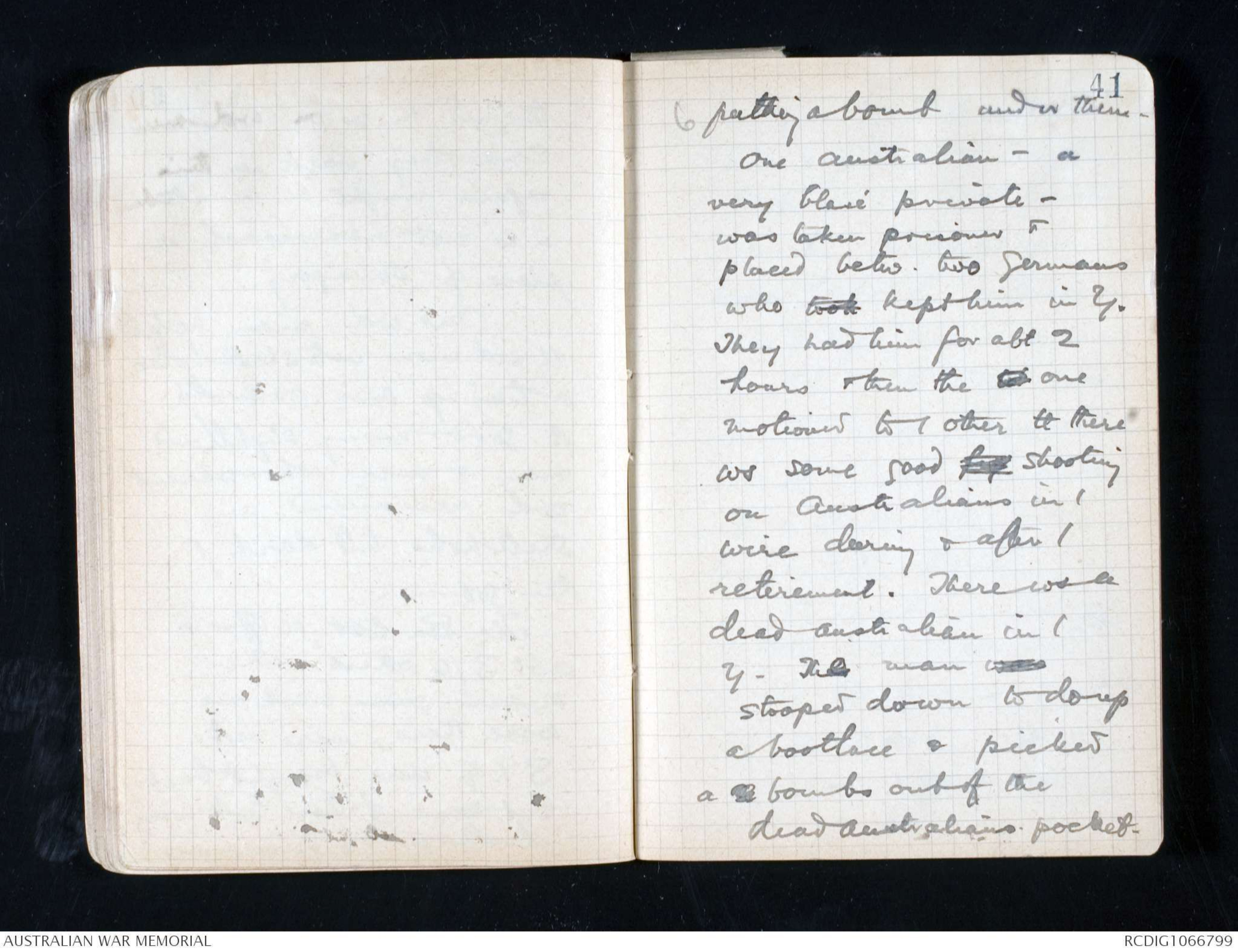
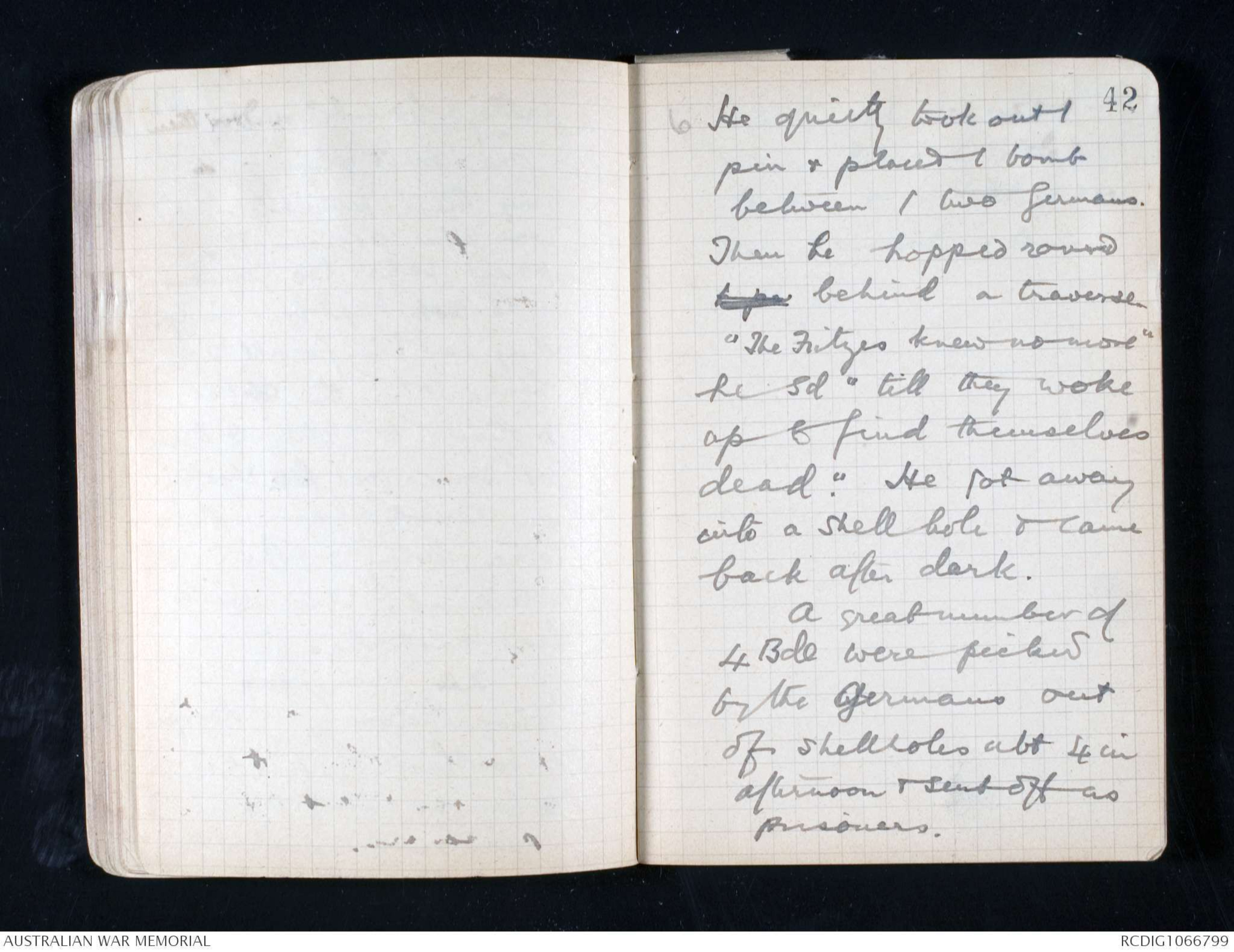
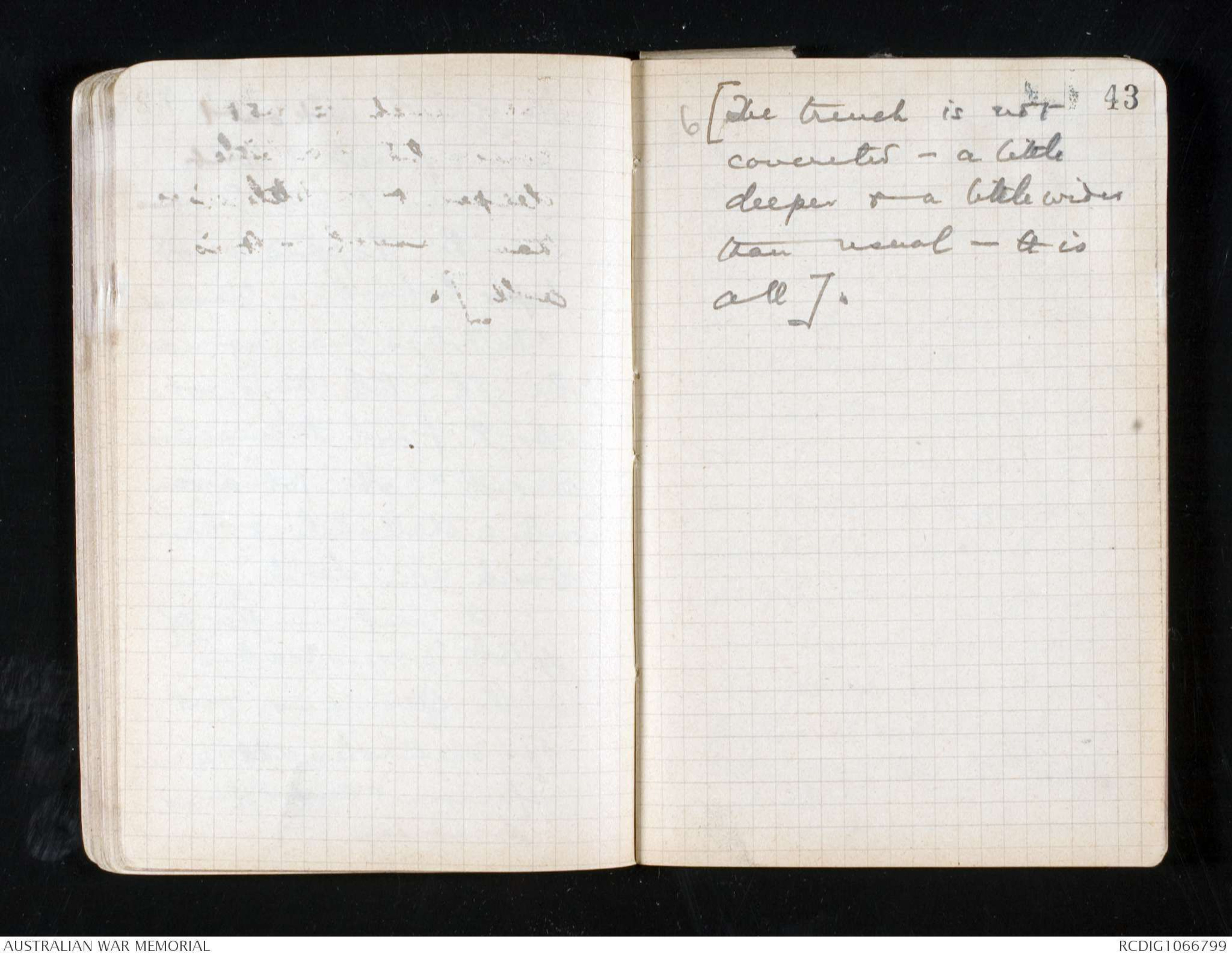
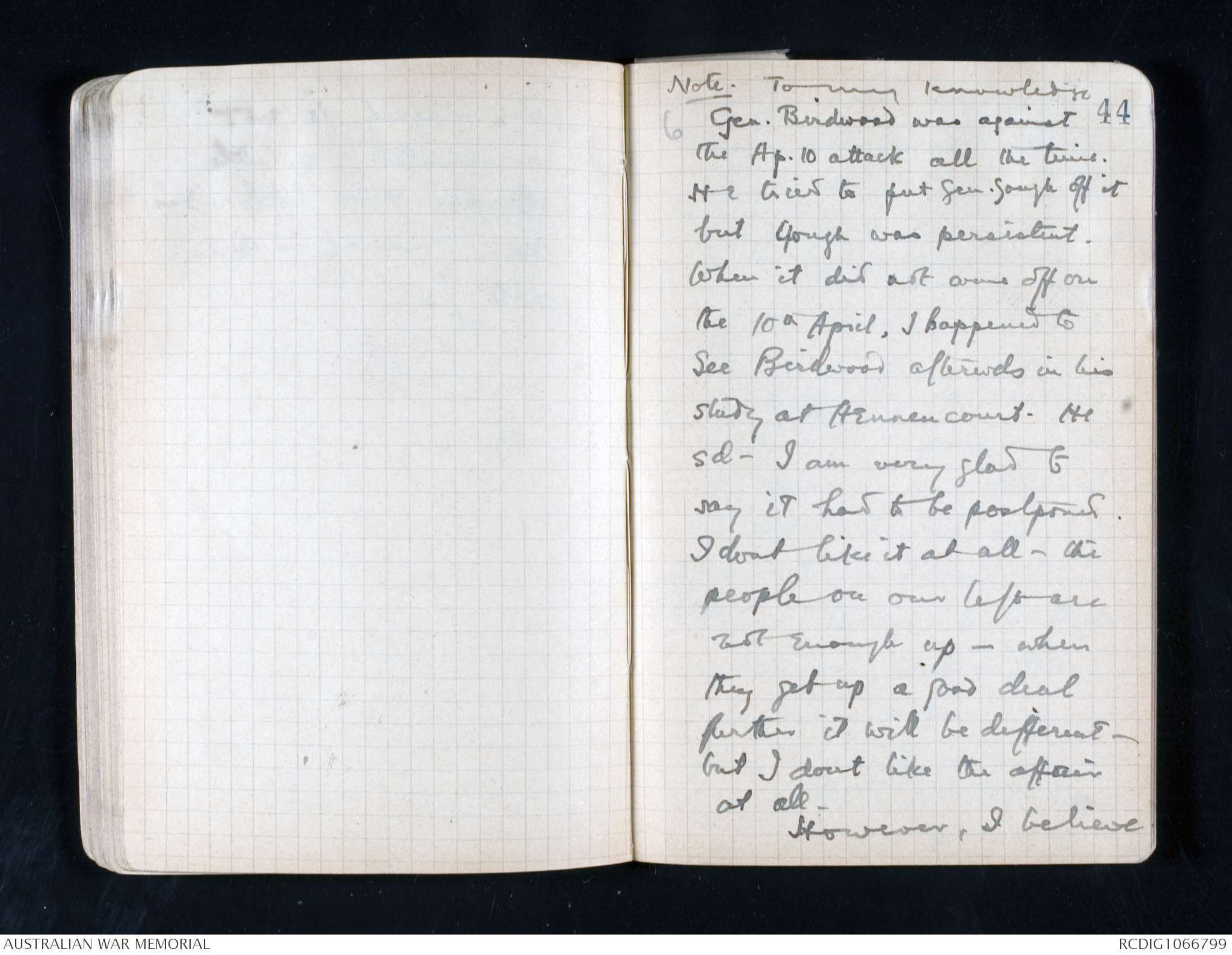
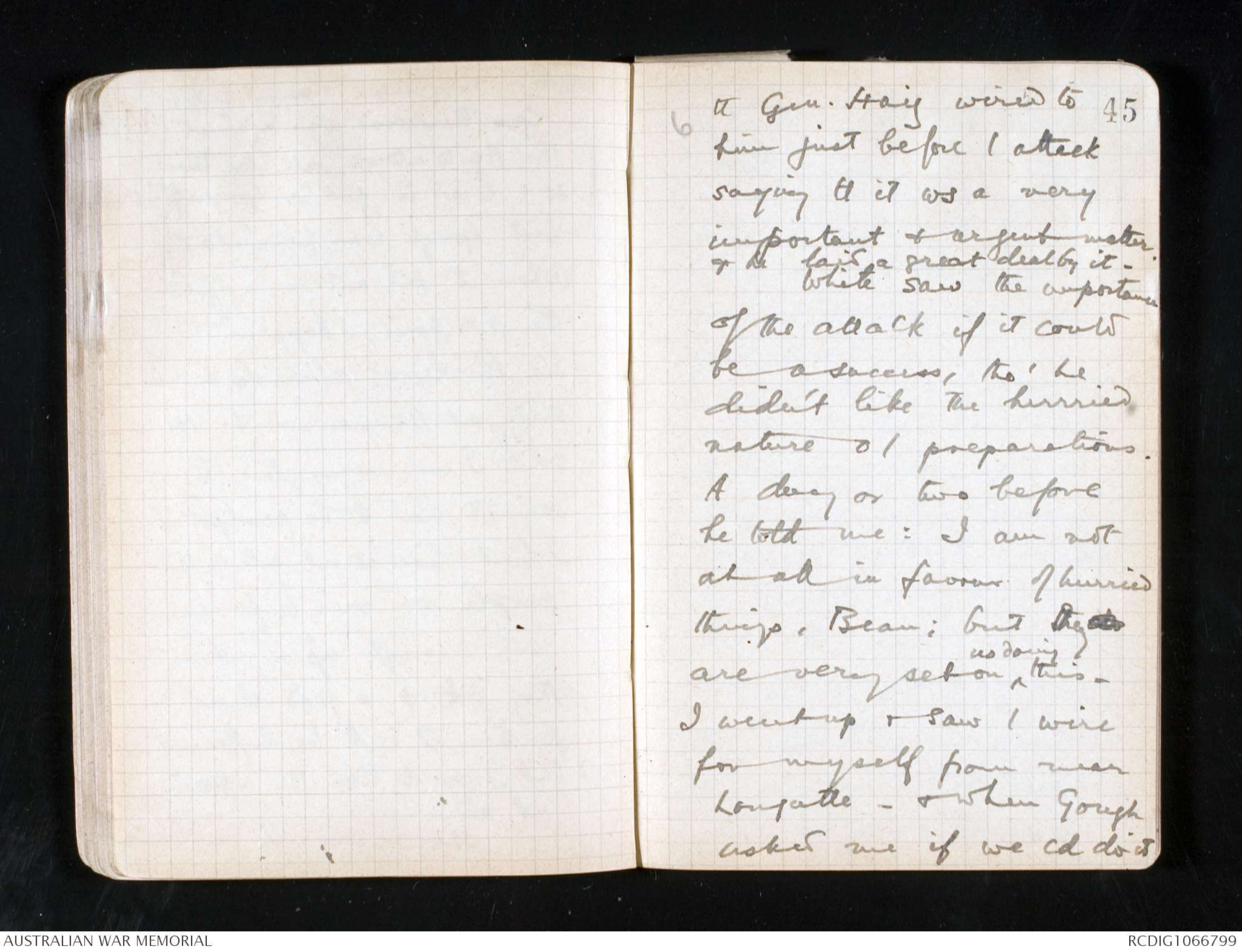
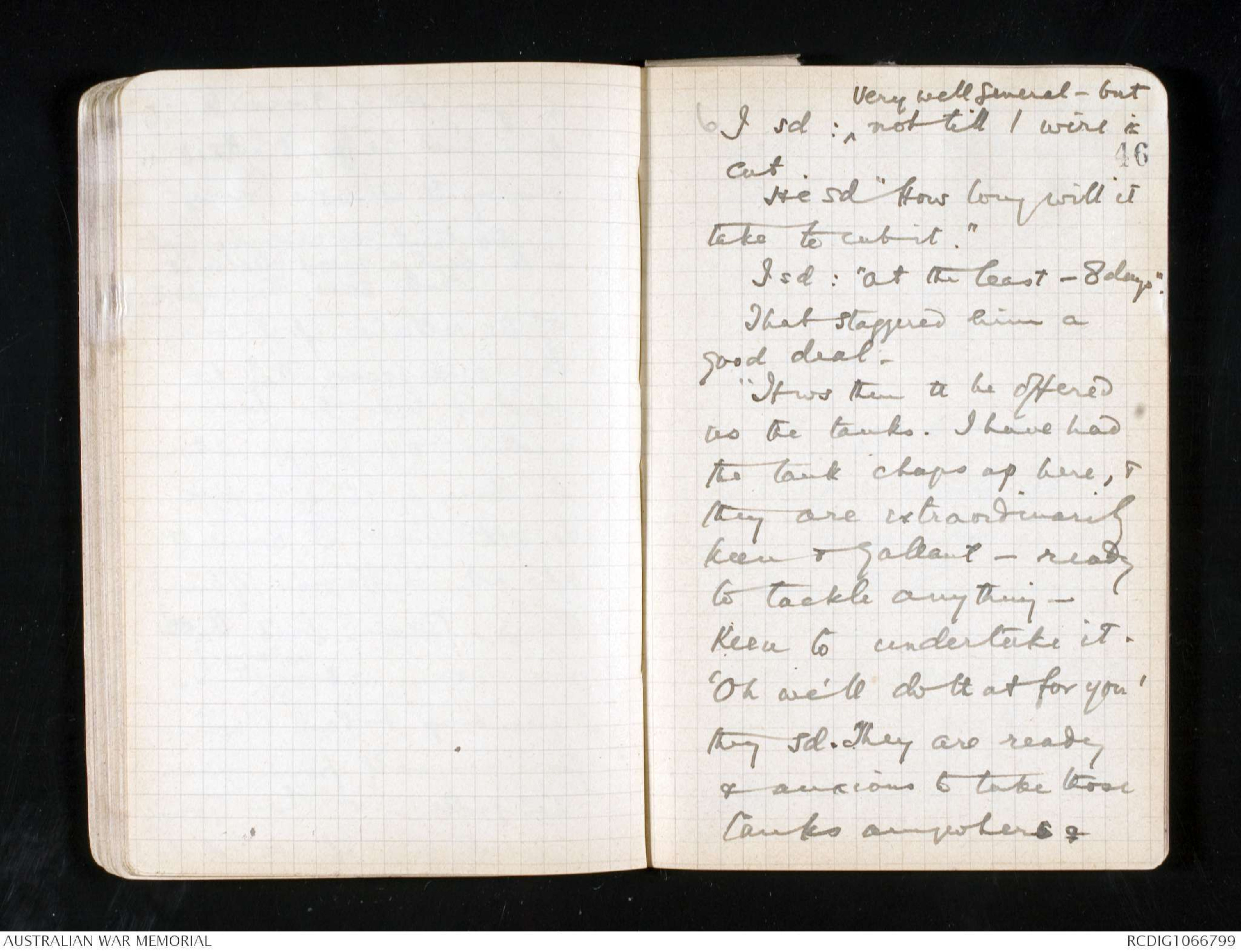
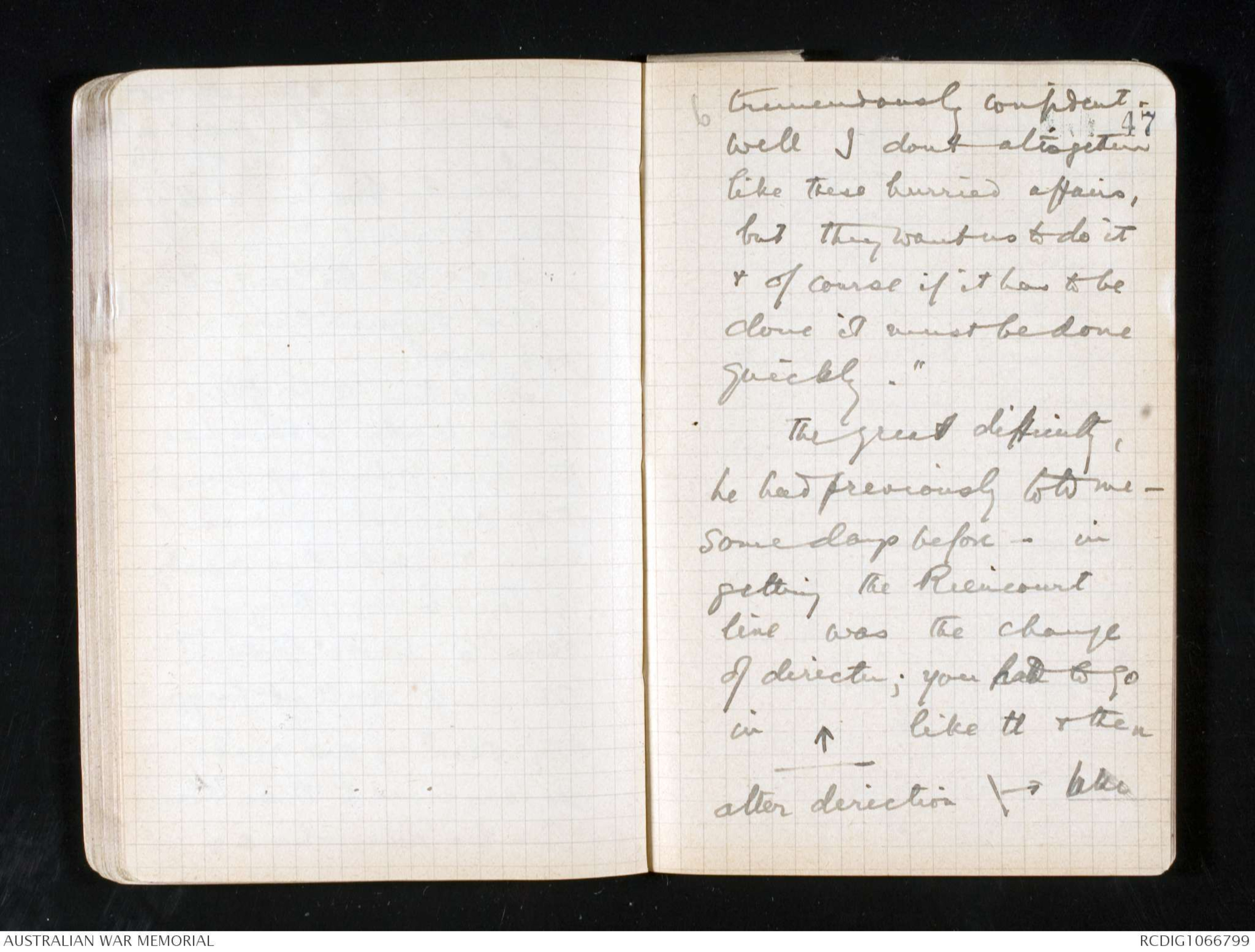
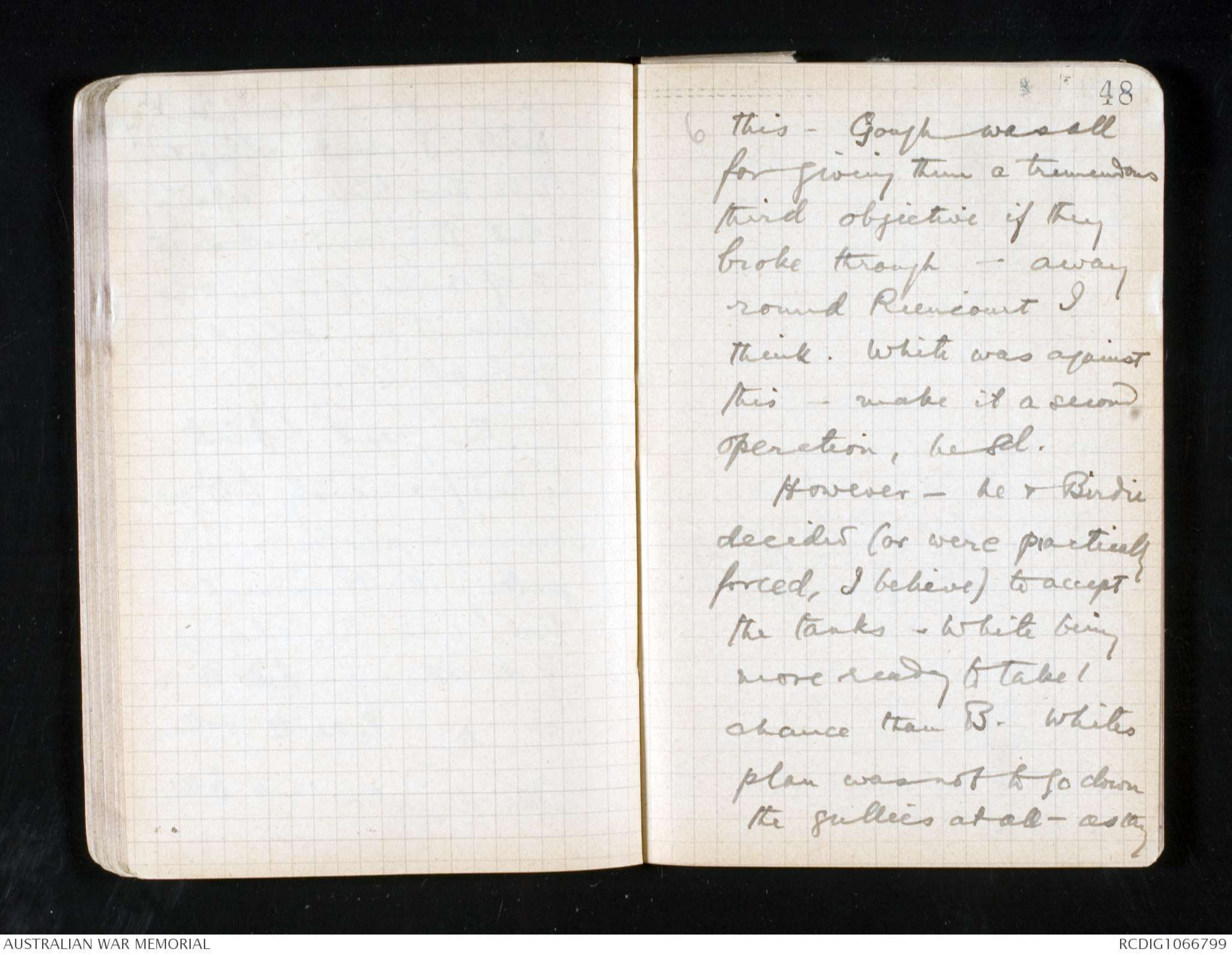
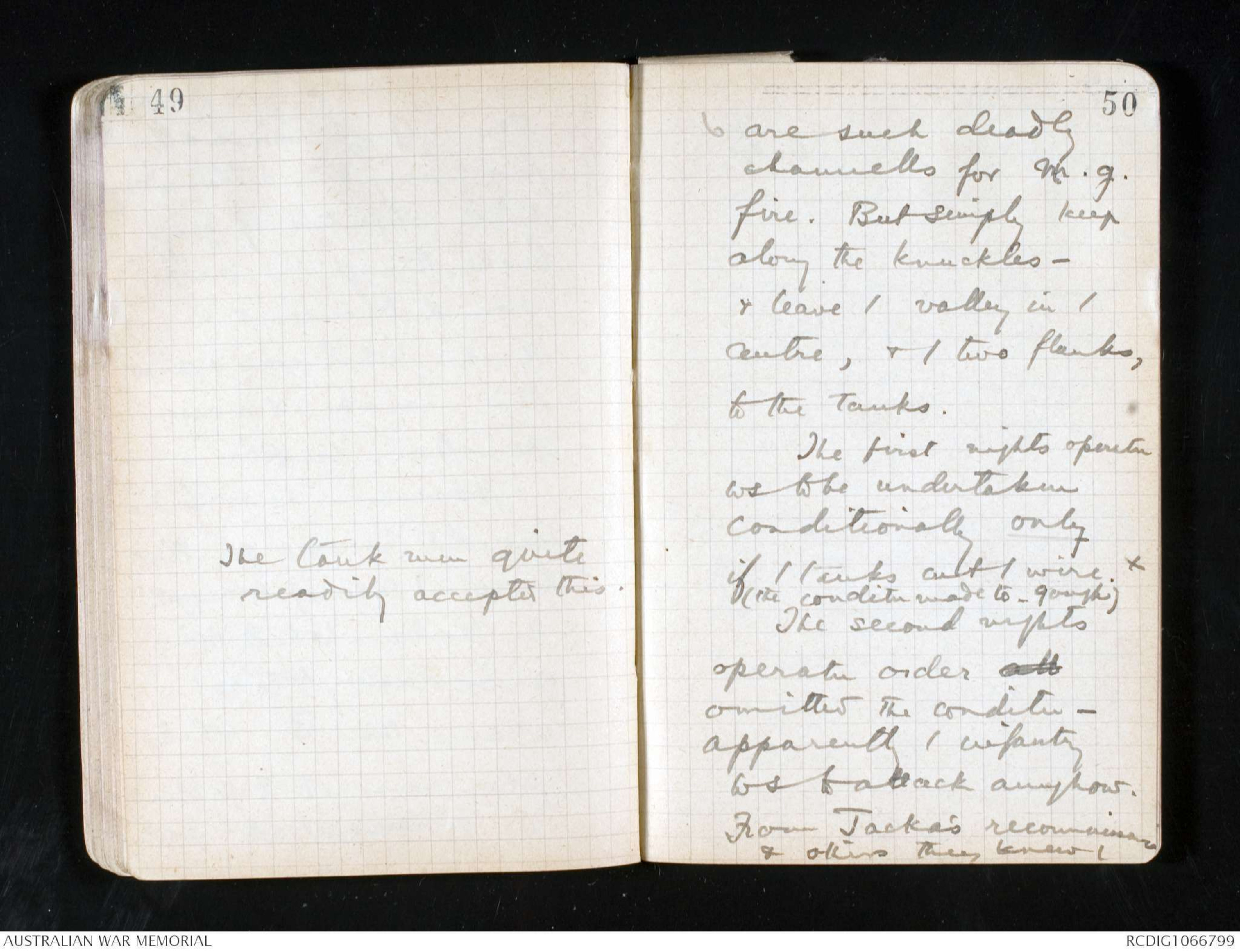
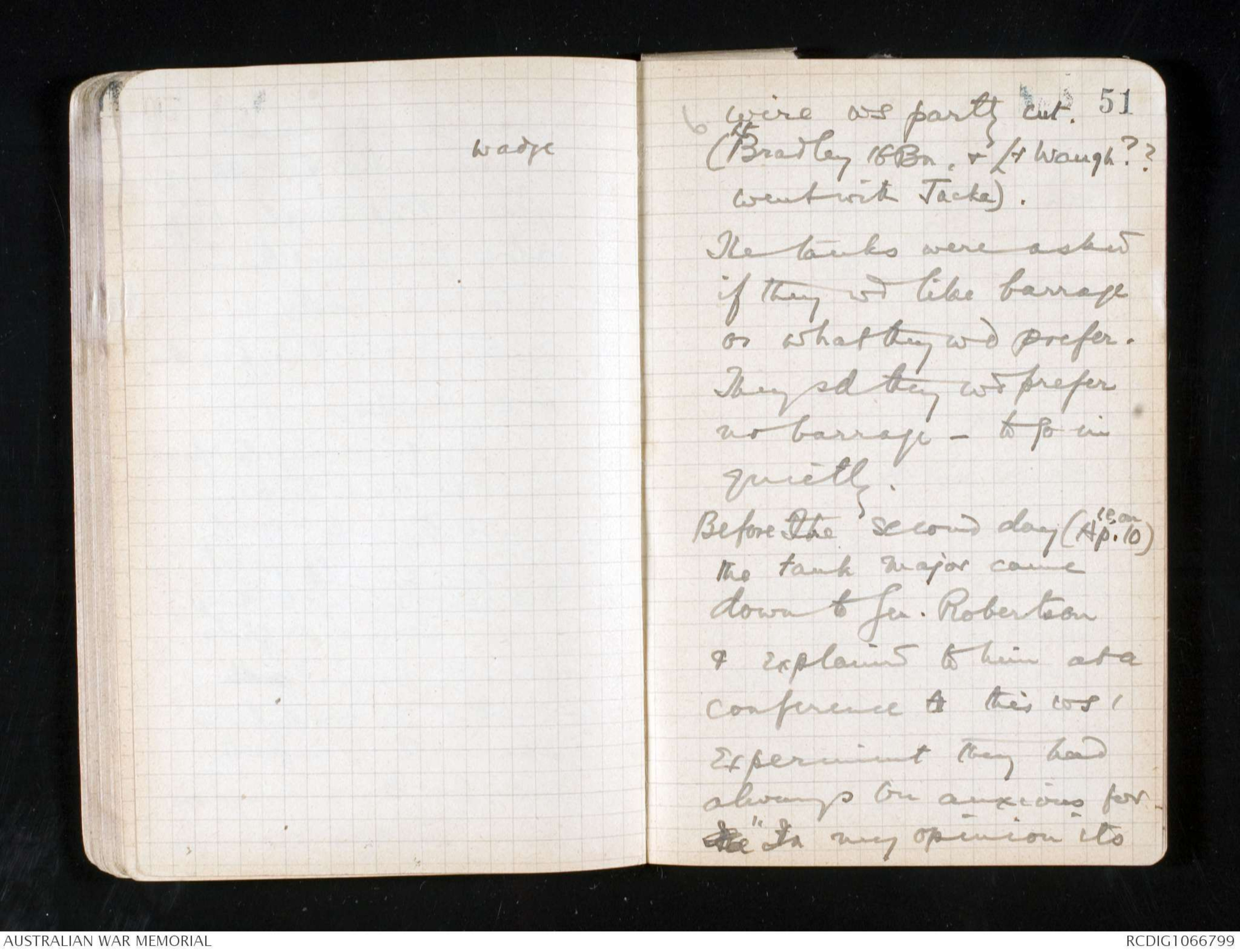
6 41
putting a bomb under them.
One Australian - a
very blase private-
was taken prisoner &
placed betw. two Germans
who took kept him in trench.
They had him for abt 2
hours & then the te one
motioned to / other tt there
ws some good xxx shooting
on Australians in /
wire during & after /
retirement. There ws a
dead Australian in /
trench. This man was
stooped down to do up
a bootlace & picked
a b bombs out of the
dead Australians pocket.
6 42
He quietly took out /
pin & placed / bomb
between / two Germans.
Then he hopped roundte behind a traverse
"The Fritzes knew no more"
he sd "till they woke
up & find themselves
dead." He got away
into a shell hole & came
back after dark.
A great number of
4 Bde were picked
by the Germans out
of shellholes abt 4 in
afternoon & sent off as
prisoners.
6 43
[The trench is not
concreted - a little
deeper & a little wider
than usual -tt is
all]
6 44
Note
To my knowledge
Gen. Birdwood was against
the Ap. 10 attack all the time.
He tried to put Gen. Gough off it
but Gough was persistent.
When it did not come off on
the 10th April, I happened to
see Birdwood afterwds in his
study at Henencourt. He
sd - I am very glad to
say it had to be postponed.
I don't like it at all - the
people on our left are
not enough up - when
they get up a good deal
further it will be different -
but I dont like the affair
at all.
However, I believe
6 45
Gen. Haig wired to
him just before / attack
saying tt it ws a very
important & urgent matter
& he laid a great deal by it -
White saw the importance
of the attack if it could
be a success, tho' he
didnt like the hurried
nature o / preparations.
A day or two before
he told me: I am not
at all in favour of hurried
things, Bean; but they sdd
are very set on ^us doing this.
I went & saw / wire
for myself from near
Longatte - & when Gough
asked me if we cd do it
6 46
I sd: Very well general - but not till / wire is
cut.
He sd "How long will it
take to cut it".
I sd: "At the least - 8 days".
That staggered him a
good deal.
"It ws then tt he offered
us the tanks. I have had
the tank chaps up here, &
they are extraordinarily
keen & gallant - ready
to tackle anything -
Keen to undertake it.
'Oh we'll do tt at for you'
they sd. They are ready
& anxious to take those
tanks anywhere &
6 47
tremendously confident.
Well I dont altogether
like these hurried affairs,
but they want us to do it
& of course if it has to be
done "It must be done
quickly."
The great difficulty
he had previously told me -
some days before - in
getting the Riencourt
line was the change
of direction; you had to go
in like tt & then
alter direction like
Diagram - see original document
6 48
this - Gough was all
for giving them a tremendous
third objective if they
broke through - away
round Riencourt I
think. White was against
this - make it a second
operation he sd.
However - he & Birdie
decided (or were practically
forced, I believe) to accept
the tanks - White being
more ready to take /
chance than B. Whites
plan was not to go down
the gullies at all - as they
49
The tank men quite
readily accepted this
6 50
are such deadly
channells for m.g.
fire. But simply keep
along the knuckles -
& leave / valley in /
centre, & / two flanks,
to the tanks.
The first nights operatn
ws to be undertaken
conditionally only
if / tanks cut / wire. x
(the condition made to gough)
The second nights
operatn order abt
omitted the conditn -
apparently / infantry
ws to attack anyhow.
From Jacka's reconnaissance
& others they knew
wadge
6 51
wire ws party cut.
(Bradley 16Bn, & Lt Waugh??
went with Jacka).
The tanks were asked
if they wd like barrage
or what they wd prefer.
They sd they wd prefer
no barrage - to go in
quietly.
Before the second day (ie, on Ap.10)
the tank Major came
down to Gen. Robertson
& explained to him at a
conference tt this ws /
experiment they had
always bn anxious for
"In my opinion its
 Deb Parkinson
Deb ParkinsonThis transcription item is now locked to you for editing. To release the lock either Save your changes or Cancel.
This lock will be automatically released after 60 minutes of inactivity.